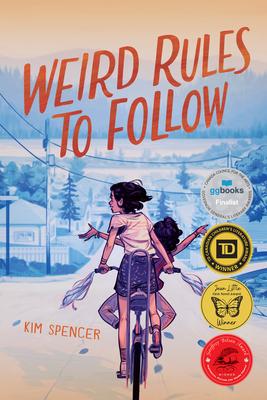★"Readers will be left with a rich image of Mia's world and the family and people that surround her as well as a strong sense of how culture and class impact people's experiences. A touching exploration of identity and culture."--Kirkus Reviews
Mia knows her family is very different than her best friend's.
In the 1980s, the coastal fishing town of Prince Rupert is booming. There is plenty of sockeye salmon in the nearby ocean, which means the fishermen are happy and there is plenty of work at the cannery. Eleven-year-old Mia and her best friend, Lara, have known each other since kindergarten. Like most tweens, they like to hang out and compare notes on their crushes and dream about their futures. But even though they both live in the same cul-de-sac, Mia's life is very different from her non-Indigenous, middle-class neighbor. Lara lives with her mom, her dad and her little brother in a big house, with two cars in the drive and a view of the ocean. Mia lives in a shabby wartime house that is full of relatives--her churchgoing grandmother, binge-drinking mother and a rotating number of aunts, uncles and cousins. Even though their differences never seemed to matter to the two friends, Mia begins to notice how adults treat her differently, just because she is Indigenous. Teachers, shopkeepers, even Lara's parents--they all seem to have decided who Mia is without getting to know her first.
